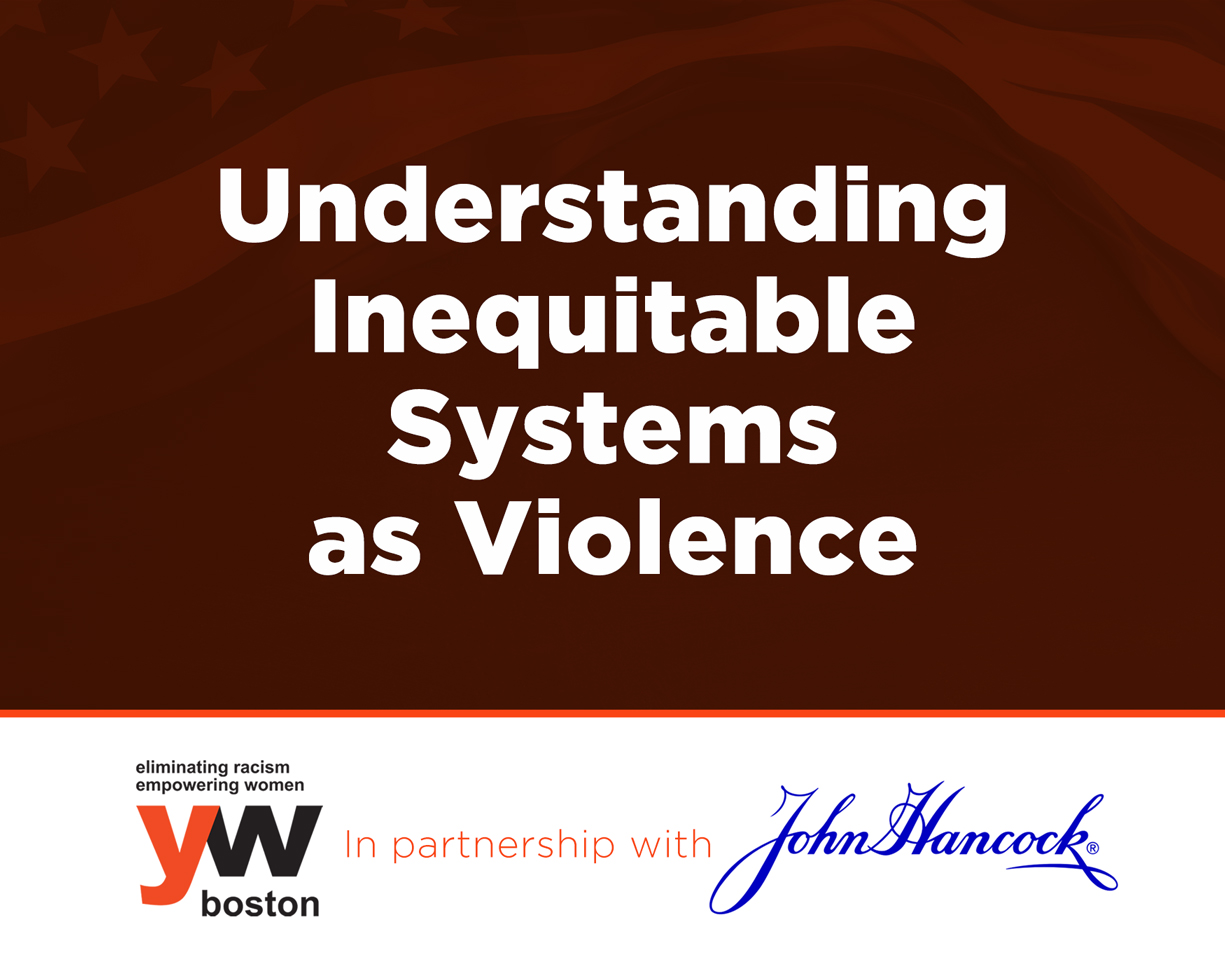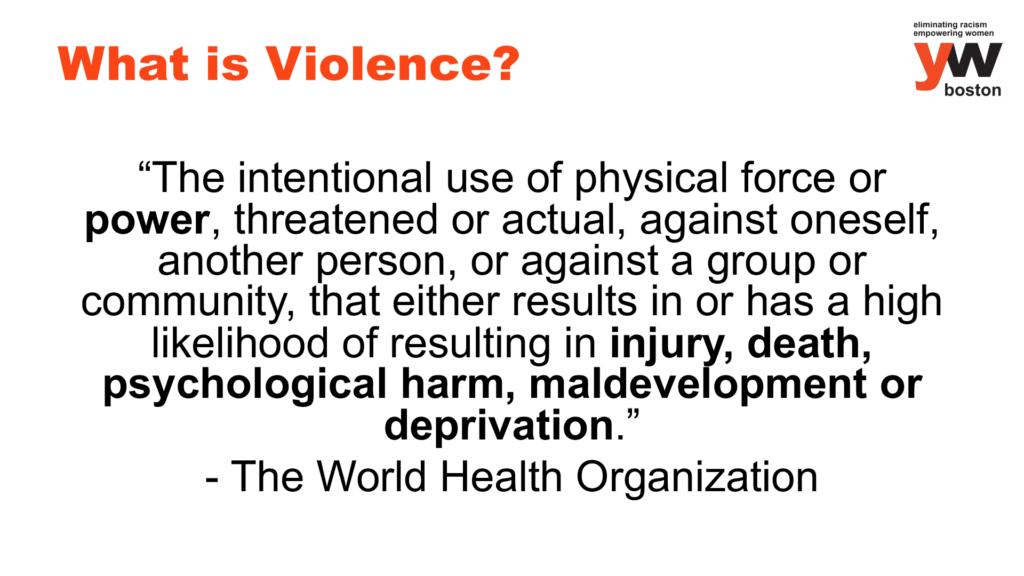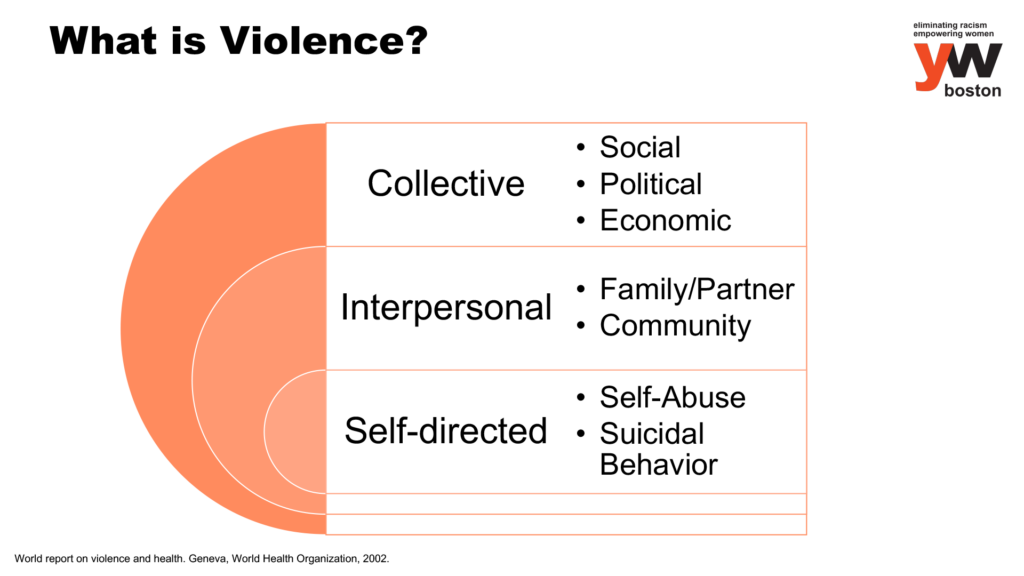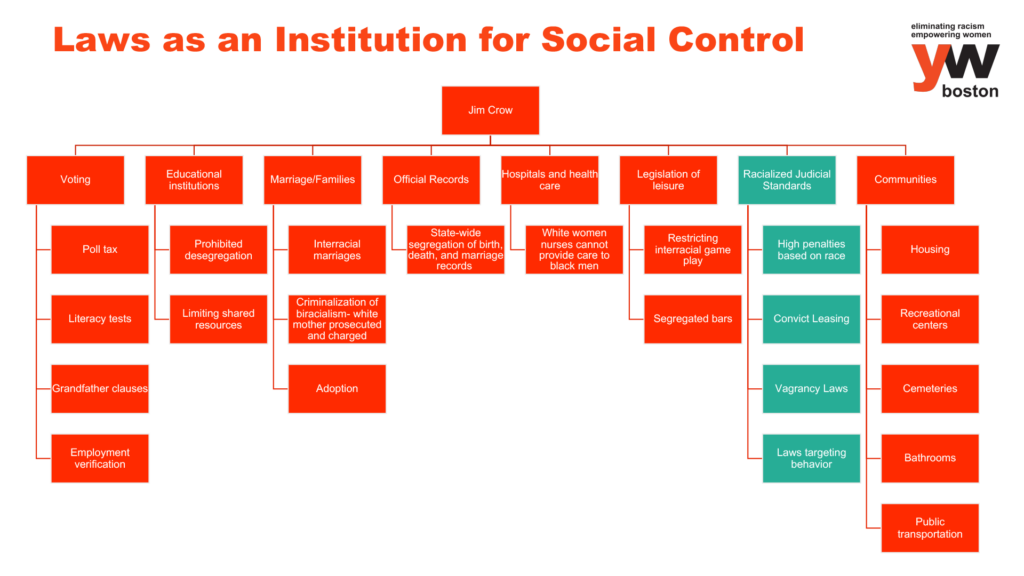
June 17, 2020
Building shared knowledge: How inequitable systems inflict violence on Black and brown communities
For over ten years, YW Boston’s InclusionBoston has helped businesses and organizations across all sectors and industries harness the power of diversity to shift organizational culture and create lasting change. This past February, InclusionBoston partnered with John Hancock as they hosted their first CEO Action Day of Understanding and several “Understanding Social Identities” workshops as part of their continuous diversity, equity, and inclusion journey.
Thanks to our partnership with John Hancock, we are making some of this content available to the broader community. Kemarah Sika, YW Boston’s Vice President of Programs, facilitated this webinar in partnership with John Hancock with the goal of fostering a better understanding of U.S. history and the violence perpetrated against people of color, particularly against Black communities, by inequitable systems. Sika also shares perspectives on how to take action and make change, both as an individual and as an organization.
Below are highlights from our presentation “Understanding Inequitable Systems as Violence”:

What is collective violence and how does it manifest itself in the world around us?

Collective violence can be broken down into three groups; social, economic, and political. While social violence can be seen in mass incarceration rates and funding for both school districts and housing, political violence can be seen in redistricting, voter ID laws, and disenfranchisement. Economic violence can be best understood when looking at the most recent financial crisis where predatory lending, subprime mortgages, and unemployment was disproportionately affecting people of color. Manifestations of social, political, and economic violence are still present to this day.

What can individuals do to share humanity and take action?
We often hear how important it is to “take action” but it can be difficult to know exactly what to do. In this webinar, we offer a few ways to make change as an individual through education, advocacy, and direct action, such as:
- Contacting your local political representatives
- Attending a protest
- Using your consumer power to support businesses owned by people of color
- Click here to find additional ways to take action against racism right now
What can organizations do to share their humanity and take action?
For an organization to become more diverse and equitable, and to create an inclusive culture, change has to encompass all areas within the organization. In this webinar, Sika shares seven pillars that need to be addressed for real change to occur within an organization, these include:
- Buy-in from leadership
- Regular working groups with various perspectives
- Examining decision-making structures to ensure diversity
- Shifting hiring, retention, and promotion structures
- Examining all practices and systems within the organization for inequities
- Defining and finding intention around the culture of the organization
- Allocating resources to support the change you are trying to achieve
You can watch a recording of the webinar “Understanding Inequitable Systems as Violence” below:
______
We wish to thank John Hancock for partnering with us to make this content available for the broader community.
If you would like to learn more about partnering with YW Boston, including in-person and online partnership opportunities, click here to schedule a free consultation.
______
About YW Boston
As the first YWCA in the nation, YW Boston has been at the forefront of advancing equity for over 150 years. Through our DEI services—Consulting & Training and LeadBoston—as well as our advocacy work and F.Y.R.E. Initiative, we help individuals and organizations change policies, practices, attitudes, and behaviors with a goal of creating more inclusive environments where women, people of color, and especially women of color can succeed.
As part of that work, we are helping organizations prioritize Diversity, Equity & Inclusion and become socially connected while staying physically distant. During this time, YW Boston is providing organizations with digital workshops and resources to help them better understand the challenges faced by their employees. For more information, please contact Sheera Bornstein at sheera@ywboston.org.

